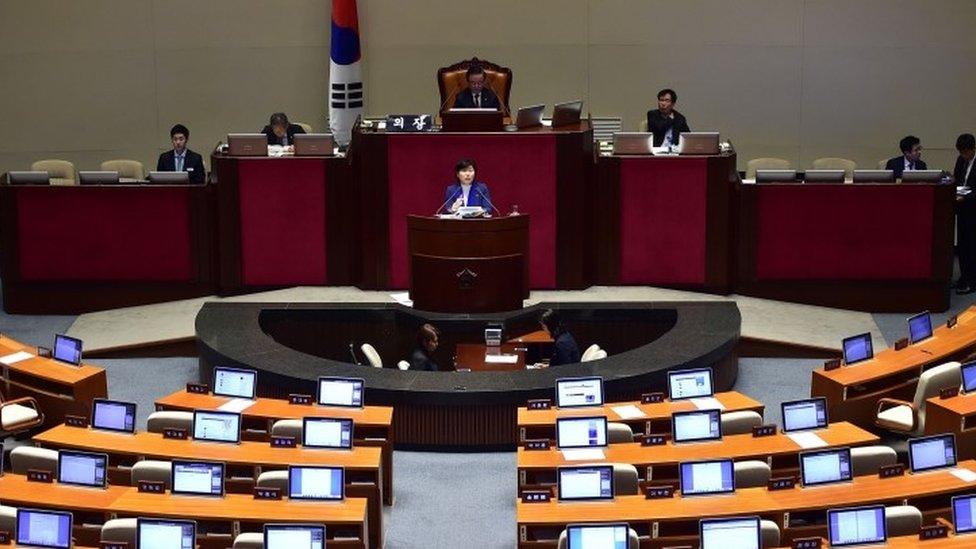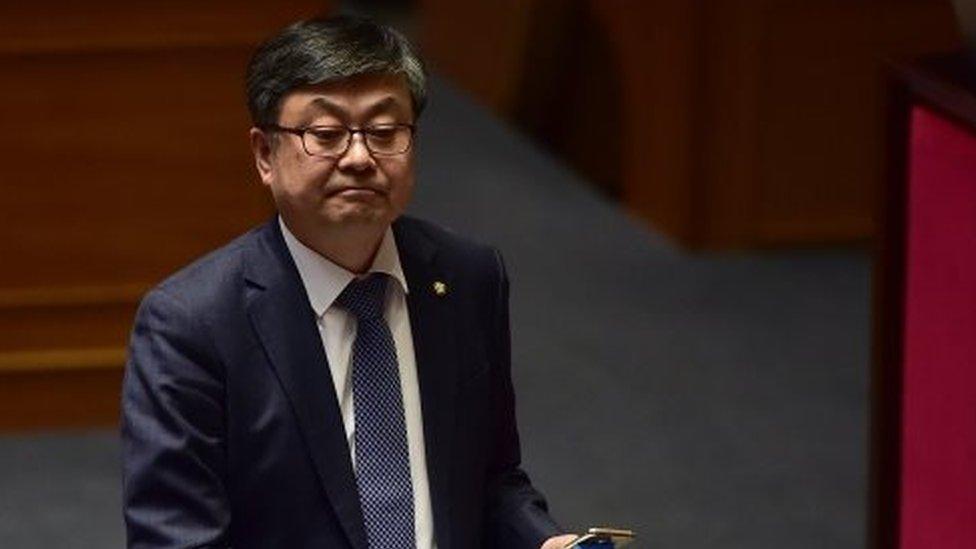South Korea record parliamentary filibuster enters new week
- Published

The South Korean main opposition party needs to carry on talking until 10 March for their filibuster to succeed
A record-breaking filibuster by South Korean opposition members of parliament has entered its seventh day.
The opposition is determined to block a vote on a government-backed anti-terrorism bill which they argue threatens personal freedoms.
Their tactics have enraged President Park Geun-hye, who says the bill is vital security measure.
The filibuster is believed to have broken the previous world record of 57 hours set by a Canadian party in 2011.
Filibustering is a parliamentary delaying tactic by which MPs drag out speeches to the end of the allocated time, so that no vote can be held.
Risk to security
Twenty-five lawmakers from South Korea's opposition Minjoo Party and Justice Party have now spent more than 140 hours taking turns to stage monologues in parliament.

Choi Won-sik was among the opposition lawmakers who spoke at length about the bill
For their filibuster to succeed, they need to carrying on talking until midnight on 10 March, when the parliamentary session is due to end.
The opposition party is demanding changes to the anti-terrorism bill supported by the governing Saenuri Party. The proposed legislation allows the National Intelligence Service (NIS) to collect a wide range of personal information - including phone records - on anyone deemed to pose a security risk.
They argue that the bill would violate privacy rights and could be used by the authorities to stifle political dissent.
"The law not only gives the the National Intelligence Service (NIS) unprecedented, unconstrained power to spy on every detail of our lives without our knowledge but also violates freedom of expression," lawmaker Hong Jong-haak said during a five-hour speech on Monday.
Those behind the filibuster have used parliamentary time to read from related laws, academic studies, news articles and internet comments. One lawmaker reported read extensively from George Orwell's 1984 novel - about ubiquitous government surveillance in a totalitarian superstate.
The government argues that the legislation is necessary to counter growing threats, especially from North Korea.
Correspondents say the NIS still has a bad reputation because of its record of enforcing authoritarian rule in South Korea before the country embraced democracy in the 1980s. It has recently been at the centre of a number of scandals including election meddling.

Individual filibustering around the world
One of the longest individual filibusters in history came in 1957, when US Senator Strom Thurmond spoke for more than 24 hours against civil rights reforms
Texas state Senator Wendy Davis spoke for more than 10 hours in 2013 to block a bill that would shut most abortion clinics in the US state
In December 2010 Austrian Green MP Werner Kogler made a speech lasting 12 hours and 42 minutes
In 1935 US Louisiana Democrat Huey Long tried to defeat a bill by speaking for more than 15 hours, reciting recipes for Roquefort salad dressing and fried oysters
In 1936 the Independent Unionist MP Tommy Henderson spoke for almost 10 hours straight in the Parliament of Northern Ireland

- Published24 February 2016

- Published21 April 2015

- Published12 December 2012
